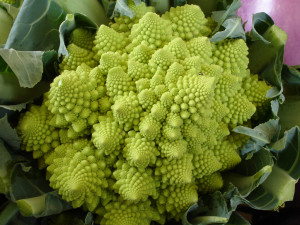I read a very interesting article this week by Jaclyn Moyer, “What nobody told me about small farming: I can’t make a living.” That was the second article that I have read recently bringing up concerns about the economic viability of the small farm. Both articles were very well written and addressed the quintessential question that any business asks, “Do I have a financially viable business model?”

It was hard for me to read this article. I believe (and want to believe) that the small farm can be a good business in addition to enjoying the many “benefits” like seeing a seed emerge from the soil or watching a pig root around. So this article questioning small farms’ staying power really hit the core of what I believe.
As I was reading this though, something jumped out at me—businesses fail all the time. Less than half of all start-up businesses are still operating after 3 years. Just because someone is a good chef does not mean they can manage a restaurant. Just because someone is good with a hammer does not mean they can run a construction company. So should farms be any different than what the rest of the economy has to deal with on a daily basis? I don’t think so. And I think that we are just beginning to see the tip of this next phase of the small farm movement.
This next stage is seeing how we can take our farms from idealism to realism? How can we take the passion of a 20 year old and transform that into a solid business for the 50 year old who wants to buy health insurance and take a vacation with their family? In essence, it is time for the small farm movement to grow up and grow through our adolescence and into adults (so to speak).
In order to make this transition successfully, farmers (including myself) need to move past this notion that just because we are farmers we are entitled to something. I see it all the time when folks get together to solve the food industry. There is an underlying (or sometimes very vocal) feeling that growers need free land, access to free equipment, should pay less taxes, and on and on.
In order to become better, we as farmers and as consumers have to shed this feeling of entitlement. I have met a lot of folks who own their own business and I have never heard one person say, “I am so glad I chose the industry I did, because it is so easy.” That just does not happen. Norm Peterson said it best in Cheers “It’s a dog eat dog world out there and I’m wearing Milk-Bone underwear.” Our farms can, and have to, compete in the open market in order for us to truly call what we are doing sustainable agriculture.
With all of that said, there was a part of the article that I think she nailed. And that was when she mentioned people who said that they loved having a farm in their community (“It looks so beautiful”) but then would not support the farm through buying their food. Unfortunately, I have heard this firsthand and seen it play out in towns where I have farmed. Small farms exist for one reason—because the community wants them there.
Every town (for the most part) has access to food outside the local farms. So it would be untrue to say that towns need farms. Towns want farms. This is a huge distinction that needs to be made. Therefore, the support from communities is what keeps farms going and growing. Farmers and consumers need to realize this. We are here because you want us here and support us being here.
Lastly, this article was timely because of a new direction we are heading to extend our internships. After 8 months on a farm, you have barely gotten your feet wet. So we are hoping to expand our internship program from 8 months to a longer journey (3 yrs) from intern to farm owner for qualified and driven young farmers.
I need more space to layout this new model, but basically we want to create a process that invests not only in our farm, but in our local food systems. I can honestly say that there is no school or farm who could better prepare a grower to farm in NM than we can and we need to maximize this potential for future growers and this farm.
Happy grazing folks,
Farmer Monte